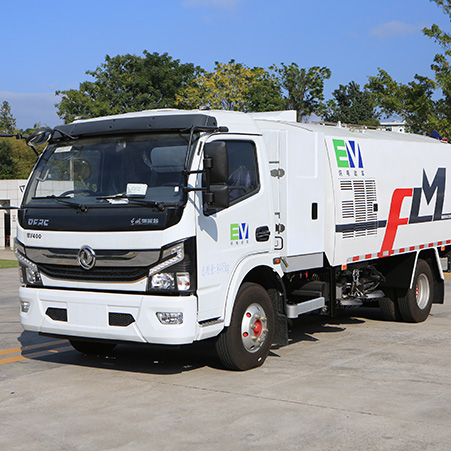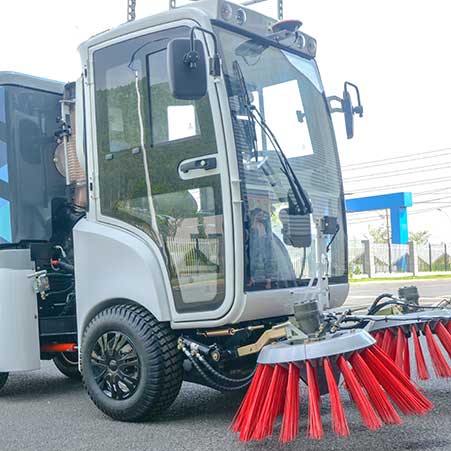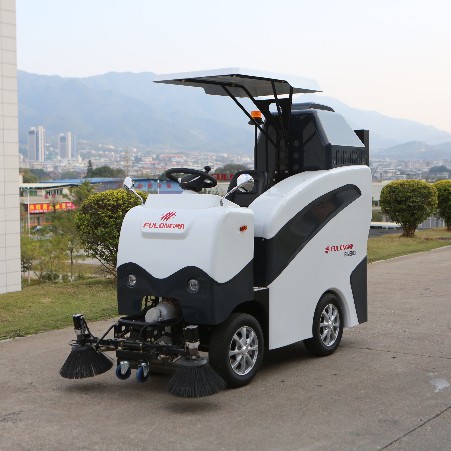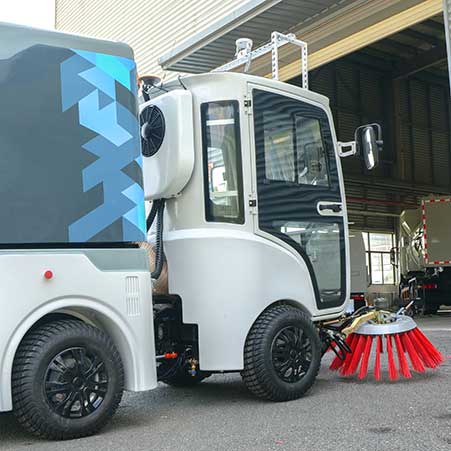Street sweeper trucks are those ubiquitous vehicles we often see slowly making their way down city streets, spraying water, sweeping debris, and leaving behind a cleaner roadway. They not only enhance the visual appeal of a city but also promote public health and safety. Debris-free streets prevent accidents, reduce pest infestations, and limit the spread of diseases. Moreover, clean streets contribute to a city’s reputation, making it more attractive to residents, tourists, and businesses. The presence of street sweeper trucks ensures that urban areas remain pleasant and safe for all who navigate them.
History of Street Sweeper Trucks
The concept of street sweeping dates back to ancient civilizations, where manual laborers would clean roads with brooms. However, the advent of mechanized street sweeping came in the early 19th century. The first street sweeper truck was invented by Joseph Whitworth in Manchester, England, in 1843. This horse-drawn machine used revolving brushes to collect debris. By the early 20th century, motorized street sweepers began to emerge, and innovations over the decades have led to the sophisticated machines we see today.

Purpose and Functionality
The primary purpose of street sweeper trucks is to keep streets clean by removing debris, dirt, and litter. These vehicles are designed to handle various types of waste, from leaves and gravel to cigarette butts and food wrappers. By maintaining clean streets, these trucks help prevent blockages in stormwater drains, reduce pollution, and enhance road safety. Modern street sweepers are equipped with advanced technology to efficiently collect and dispose of debris, ensuring urban areas remain clean and tidy.
Types of Street Sweeper Trucks
There are several types of street sweeper trucks, each designed for specific needs and environments:
- Mechanical Broom Sweepers: These are the traditional sweepers that use rotating brushes to collect debris and deposit it into a hopper.
- Vacuum Sweepers: These use powerful suction to lift debris from the street and store it in a container.
- Regenerative Air Sweepers: These use a blast of air to dislodge debris and then vacuum it up.
- High-Efficiency Sweepers: Designed for areas with fine particulate matter, these sweepers use advanced filtration systems to capture small particles.
Components and Operation
- Brushes: Rotating brushes sweep debris toward the center of the truck.
- Water Sprayers: These help to control dust and soften dirt for easier collection.
- Vacuum System: Used in vacuum and regenerative air sweepers to lift debris off the ground.
- Hopper: A container where the collected debris is stored until disposal.
- Control System: Allows the operator to manage the speed, direction, and function of the sweeper.
Benefits of Street Sweeping
- Public Health: Reduces pollutants, allergens, and disease vectors.
- Environmental Protection: Prevents litter and debris from entering waterways and ecosystems.
- Safety: Removes hazardous debris that could cause accidents.
- Aesthetic Appeal: Enhances the visual appeal of streets and neighborhoods.
- Economic Value: Increases property values and attracts businesses and tourists.
Conclusion
Street sweeper trucks may often go unnoticed, but their impact on urban life is profound. From their historical roots to their modern technological advancements, these vehicles play a vital role in maintaining clean, safe, and attractive urban environments. By understanding their purpose and functionality, we can better appreciate the importance of these silent custodians of our streets.
FAQ
How often are streets swept in urban areas?
The frequency of street sweeping varies by city and depends on factors such as traffic volume, climate, and local regulations. Some busy urban areas may have daily sweeping, while residential neighborhoods might be swept weekly or monthly.
Can street sweeper trucks operate in all weather conditions?
Street sweeper trucks can operate in various weather conditions, but heavy rain, snow, and extreme cold can hinder their effectiveness. Sweeping schedules are often adjusted based on weather forecasts to ensure optimal performance.
What happens to the debris collected by street sweeper trucks?
Collected debris is transported to designated disposal facilities, where it is sorted, recycled, or sent to landfills. Some cities have specialized programs to compost organic waste collected by street sweepers.
Are street sweeper trucks environmentally friendly?
Modern street sweeper trucks are designed with environmental considerations in mind. They use water sprays to control dust, and many are equipped with low-emission engines and advanced filtration systems to minimize their environmental impact.
How can residents help in the street-sweeping process?
Residents can assist by adhering to street sweeping schedules, moving their vehicles from designated areas on sweeping days, and avoiding littering. Community cooperation ensures that street sweeper trucks can clean streets effectively and efficiently.








